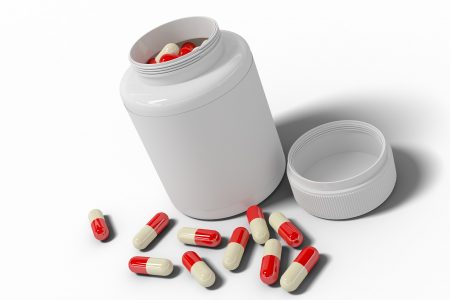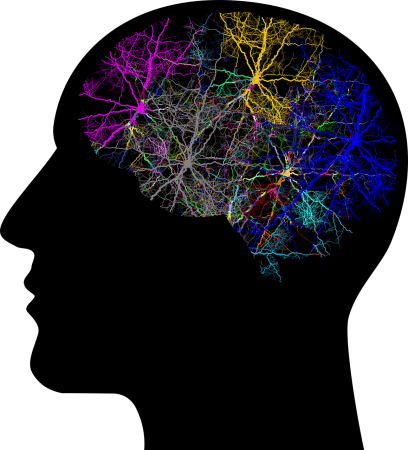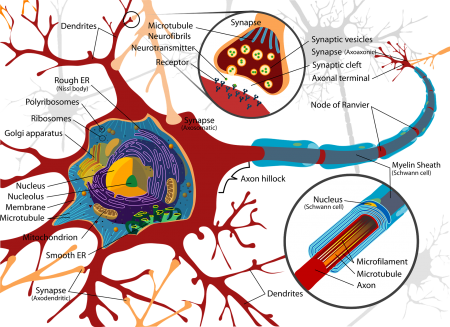16 Things You Need to Know About Your Cholesterol Levels
My focus as a nutritionist is on mental health. For this reason, I always want to see cholesterol numbers. This surprises most people because they only associate cholesterol with heart disease and strokes, not with depression, anger, and suicidal ideation.
I am seeing lower total cholesterol numbers, and this is really concerning me. In fact, some people tell me they get” rewarded” by the insurance company for having lower numbers.
Labs are even now marking total cholesterol above 170 too high! This is just wrong, and really upsetting to me when there are so many people struggling with depression and the suicide rate is not going down.
Worldwide the estimate is 300 million people are suffering from depression and in the U.S it is estimated that between 6.7% to 7.4% of the population have experienced a major depressive episode in the past year. I know there can be many root causes, and low cholesterol is just one root cause but let’s not ignore it!
The Truth About Statins
My personal belief is that the total cholesterol ranges on lab work keep going down so that more and more people can be placed on statin drugs. The industry as of 2017 was worth 19.2 billion and it is estimated to grow by 4.9% each year over the next three years. By 2022 the statin industry will be worth 24.4 billion.
As of now, most doctors recommend that everyone over 65 years of age be placed on a statin. In fact, the American College of Cardiology (ACC) and the American Heart Association (AHA) have issued guidelines for Americans, stating that everyone over 70 is supposed to take a statin. I am not even going to tell you what I think of this! (If you want more info on this www.statinnation.net has some good video clips and information).
In the JUPITER study on Crestor, a statin drug, the results show that a doctor needs to treat 100 people or more with Crestor for one year to spare ONE of those people from a cardiovascular event. The doctor would have to treat several hundred with Crestor for one year to spare ONE from a heart attack and hundreds more to spare one person a stroke. It comes down to a 1.2% difference between taking the statin and not taking the statin. (not to mention that in the study it showed that those who took the statin has increased risk of diabetes)
It frustrates me that doctors are pushing for lower and lower cholesterol numbers. If you want to know more about the truth on statins, Dr. Brownstein’s site is a good place to start as he does a good job of breaking down the data numbers and helping you to understand the real results from these studies.
This is hurting not helping our society!
Cholesterol and Mental Health
We all need to be aware of the impact that low cholesterol has on mental health. Depression is not going away and sadly, the rate of depression is climbing. Suicide and violence are on the rise as well and you would probably never think that cholesterol could be playing a role but if it is low it very well may be playing a huge role in anger, angry outbursts and violence.
Research is suggesting that low cholesterol is very rare. I am sure elevated cholesterol is still much more common in society with the rate of obesity, and metabolic syndrome but even so, low cholesterol exists, and it is a problem that needs to be addressed! I find it hard to believe that it is rare when I am seeing more and more people with mental health issues with total cholesterol levels below 160.
Most blood mark numbers have ranges, but we never want too low or too high. We are striving for balance. I know western medicine seems to think for some markers, lower is better, but the data shows otherwise. Cholesterol is one of those markers. It has been deemed an enemy, a bad thing your body produces, but in fact your body produces it because you need it!
You don’t want too low cholesterol and I see many labs flag it in red for being high, when research shows that this number is too low! (for instance, some labs even flag total cholesterol when the number is above 170!)
According to research and experts in the field such as Dr. Sinatra, he doesn’t worry about elevated numbers until is gets close to 300. Studies show that for older women, elevated TC in the ranges of 230-270 are heart protective.
The problem is that doctors keep telling us to lower it and when you try to do any research on low cholesterol, much of the information is on how to lower your cholesterol instead.
If cholesterol is needed for proper brain function, for making neurotransmitters, for neurological function, to make hormones and to aid in breaking down fats and for nutrients to get into our cells, what happens to our brain health and our mental well being when we are not getting enough?
Cholesterol and Suicide and Depression
There are numerous studies showing the link between low cholesterol and major depressive disorder and suicidal ideation. However, many argue that association is not causation which I agree with but when you look at the importance of cholesterol for hormonal balance, for neurotransmitter function and for nutrient absorption, I don’t see how it could not be a direct cause.
I am not saying that everyone with low TC has or will have depression but if someone does have depression, thoughts of suicide or anger issues, cholesterol numbers are one piece to the puzzle that cannot be ignored and often it is ignored if it is not elevated!
Signs and Symptoms of low cholesterol include depression, anger, violence, suicidal ideation, low to zero sex drive, anxiety, brain fog, forgetfulness/poor memory, lack of impulse control and reckless behavior.
Low Total Cholesterol Causes
- Hyperthyroidism
- Anemic
- Malnutrition, poor diet
- Malabsorption (esp. of fats)
- Chronic inflammation
- Infection (chronic or acute)
- Chronic liver disease
- Drug induced from statins
- Cancer
- Celiac disease
- Vegetarian diet
- Parasite infection (they feed on host’s cholesterol)
- Bacterial infection, viral infection
- Genetic disorders
16 Things You Should Know About Your Cholesterol
- You cannot live without cholesterol-cholesterol is not the enemy!
- It is found in every cell in the body
- Your body makes its own and recycles what you have
- Highs and lows are never good-you want balance
- Your cell membranes contain cholesterol. The cholesterol in the cell membrane keeps it fluid so that oxygen and nutrients can get into the cell and waste can get out. If you don’t have enough cholesterol, the cell membrane can become stiff and rigid, these processes become difficult to occur hence you may end up with nutrient deficiencies and toxin overload
- Cholesterol also transports substances once they are IN the cell membrane. In this way it helps to maintain homeostasis within the cell
- In the nervous system, the myelin sheath is rich in cholesterol. Thus, low cholesterol can affect you neurologically and impact your memory and cognition.
- Cholesterol is a building block for your hormones-estrogen, DHEA, adrenal hormones, progesterone, testosterone. Hormone balance impacts your mood, your energy, your weight, your overall well-being, your sleep, your sex drive-you need cholesterol if you want your sex hormones to function optimally.
- You need it to make vitamin D, A, K and E which are your antioxidant vitamins which can bind to free radicals.
- In the liver, cholesterol is converted to bile (stored in the gallbladder) and then released as we eat to aid in digestion of fats.
- Your brain can pay the price for low cholesterol-suicidal ideation, violence, aggression, depression, brain fog, poor cognition, memory loss (your brain is mostly fat, and it needs cholesterol to help regulate mood and to help you think)
- You need some triglycerides-your lab work may have a range starting at zero but you need some to supply you with energy. (having too low-below 40 mg/dl can be a symptom of hyperthyroidism, poor diet, some medications, low fat diet, issues with absorption of your fats). According to Dr. Sinatra, a specialist in CVD, the triglyceride number on lab work should ideally be right around half of the TC number. So for instance, if your total cholesterol number is 200, your triglyceride number should be 100.
- Impacts your Neurotransmitters: Having low cholesterol can alter the way brain cells function. Brain cells with lower levels of cholesterol may have fewer than normal receptors for serotonin which can lead to depression by preventing the cells from receiving and using this NT.
- TC below 160 is associated with increased risk in depression and suicidal ideation
- Violent crimes are associated with low cholesterol below 160
- Low sex drive or none at all? Your cholesterol plays an active role in sex hormone production.
How to Fix Low Cholesterol
- If caused by medication, discuss with your doctor the need for cholesterol lowering medications, especially if you are a female post menopause since cholesterol is shown to be heart protective in this group.
- Eat a diet rich in healthy fats (Avocdado, coconut, raw nuts and seeds and their oils, grass fed organic meats, organic poultry, wild caught fatty fish, pasture raised eggs)
- Eat non- vegetarian protein sources at least one to two times per week. Consume meat sources only that are organic and grass fed. If you don’t eat meat, cook with tallow or lard. Or take organ meat supplements such as the Ancestral Supplement line of products.
- Get tested for any genetic related causes
- Compare past and current lab markers-did cholesterol levels go up or down? What happened, changed in the time period?
- Get tested for gut infections (I like the GI MAP test)
- If cholesterol is very low, there is a product, New Beginnings, Sonic Cholesterol, which provides 250 mg. of cholesterol per capsule. Two to six caps may be needed daily in order to raise levels and to see an improvement in mood and brain function. Cholesterol repletion is a slow process and can take months to see improvement. Re-test levels in 6 to 12 months after supplementation.
- Work with a holistic health professional that can guide you to raising your cholesterol in a healthy manner.
Bottom Line: The goal should not to be to reduce total cholesterol levels below 160. Balance is key. High cholesterol can set you up for CVD but low cholesterol can set you up for just as many, if not more, health issues.
Sources
http://articles.mercola.com/sites/articles/2015/08/02/heart-dissease-Risk-factors-aspx?
https://www.ncbi.nlm.nih.gov/pubmed/20626336
https://www.ncbi.nlm.nih.gov/pmc/articles/PMC3074286/
https://bmcpsychiatry.biomedcentral.com/articles/10.1186/s12888-018-1596-z
https://annals-general-psychiatry.biomedcentral.com/articles/10.1186/s12991-017-0144-4
https://www.ncbi.nlm.nih.gov/pubmed/28428806
https://www.statista.com/topics/4569/depression-in-the-us/
https://time.com/5269371/americans-anxiety-poll/
https://abcnews.go.com/Health/HeartDiseaseNews/story?id=6207285&pae=1
Bauman, E. & Friedlander, J. (2014) Therapeutic Nutrition. CA: Bauman College
Bowden, J. & Sinatra, F. (2012) The Great Cholesterol Myth. MA: Fair winds press.
http://healthimpactnews.com/2019/dispelling-the-myth-that-ldl-cholesterol-is-bad/






Leave A Comment
You must be logged in to post a comment.